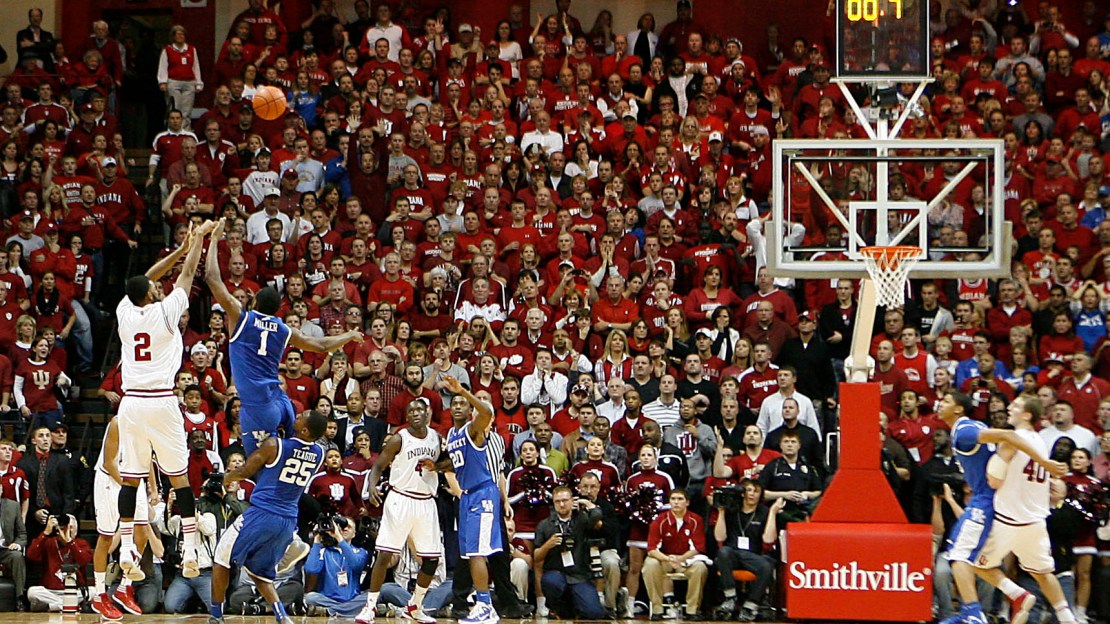BTN.com staff, December 28, 2012
Ken Pomeroy and Dan Hanner are both within the inner circle of tempo free statistics, so it?s notable when they disagree. On the topic of ?clutch,? Pomeroy is on record as saying that clutchness is a myth. Hanner, for his part, rejects Pomeroy?s argument and believes ?there is such a thing as clutch play.?
I don?t know who is right, and no one else does, either. And that?s kind of the point.
Hanner admits that clutch play may not have any value for predictive purposes. That?s largely because when the three-pointer goes in at the buzzer, there?s no way to know whether that was the product of clutch play, or whether it was simply the random result within the realm of plausible outcomes given the shooter?s talents. No one will ever be able to provide an accurate list of players that are clutch, and players that are not. That?s because a player is clutch until he isn?t. At this point, when someone is anointed the label of ?clutch,? it simply means that at least once that player has performed well late in a close game.
For me at least, that?s the real problem I have with clutch. I don?t know if it exists (at least for college or professional players), and no one else does, either. If it does exist, it doesn?t seem to exist in a way that?s both predictable and measurable. If we all acknowledged that, I think clutch would be a fine term.
But too often the label of clutch is thrown in the game recap because it?s part of our need to apply a narrative to the game. The winning team can?t just be the guys who scored more points than the other guys, they won because they were more virtuous. They cared about the outcome more, they played harder, they listened to their coach. And when the game was on the line, the winners didn?t shrink in the spotlight.
That?s garbage. Not to take anything away from The Winners, but The Losers care an awful lot, too. This March, there will be plenty of images of dejected college kids whose seasons and playing careers have come to an end. There?s no convincing me of the fact that those kids cared any less about the outcome of the game than the guy who happened to hit the winning shot.
Moreover, the line between goat and hero is precariously thin. Remember this shot? What everyone remembers from that game is The Shot, and then Bryce Drew?s teammates mobbing him at halfcourt as Valparaiso pulled a stunner of an upset. But what you probably don?t remember is that with about 8 seconds to go, Drew missed an open 3-pointer that would have put his team in the lead. After Ole Miss grabbed the rebound, Valpo put Ansu Sesay at the line. Sesay was a 73 percent free throw shooter that year, and was 3 for 4 to that point in the game. If he made one of his shots, the best Valpo could hope for was overtime. If he made both, the game was over.
But he missed them, and that enabled Drew?s shot to win the game. Had Sesay made his free throws, Drew isn?t clutch-he?s a goat. Frankly, the opponent?s free throw shooting shouldn?t have anything to do with whether a player is ?clutch? or not, so my preference would be that we stop looking for it, and stop pretending that we know it when we see it. Clutch might exist, and it might not, but certainly no one can tell you whether any game was blessed with its appearance.
So from henceforth, we will not tell you about how clutch a certain player is or (even worse) give our opinion that someone has choked. If you?re looking for that cup of tea, you should probably keep looking.







 Basketball is back! Find available live games on our B1G+ app via BigTenPlus.com.
Basketball is back! Find available live games on our B1G+ app via BigTenPlus.com. 